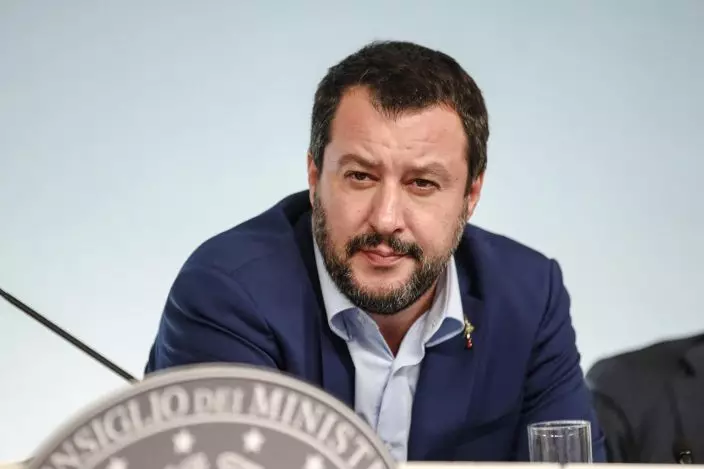Italy's populist government was heading into a budget battle with the European Union after disregarding pointed warnings to ease up on spending promises that have shattered previous deficit pledges and threaten Italy's ability to lower its heavy debt load.
The EU Commission President Jean-Claude Juncker told reporters in Brussels on Tuesday that the rest of Europe would revolt if the Commission accepted the budget draft that Italy submitted overnight.
But he also said he would listen to Italy's arguments during a period of discussion on the draft, and urged other member states "not to put Italy on the defendant's stand" during a two-day EU summit starting Wednesday.

Italy's Interior Minister and Deputy-Premier Matteo Salvini speaks during a press conference on Italy's budget law, at Chigi Palace Premier officr, in Rome,Monday, Oct. 15, 2018. (Giuseppe LamiANSA via AP)
Italy's economy minister, Giovanni Tria, also sought to keep tones down, telling reporters in Rome that the budget "would not make Europe fall apart" and negotiations will start with the EU.
Investors, meanwhile, have reacted with calm to the new Italian budget draft, which delivers on electoral promises to restore pensions to as many as 400,000 people whose retirement age had been pushed back and to create a basic salary for some job-seekers.
Italy's cost of borrowing 10-year money was stable at 3.45 percent. The main stock index in Milan was up nearly 1 percent.
Italian leaders say the budget plan will boost growth through higher spending. However, other European Union countries have raised concerns that the increase in Italy's budget deficit to 2.4 percent of annual GDP - beyond previous pledges of under 2 percent - will increase the already high public debt.
Economist Lorenzo Codogno of LC Macro Advisors says he doubts the government's claim that creating demand by making more funds available would generate growth and thereby reduce the debt load.
"It will be a temporary stimulus with permanent negative effects on public finances," he said. "It could be argued that, if structural reforms come after the budget, it may still be considered as a reasonable gamble. However, at the moment, there is no reason to believe that they are coming."
Besides the extra spending, the draft offers the possibility of a tax amnesty for some lower-level scofflaws. Interior Minister Matteo Salvini also estimates the reduction in migrant arrivals means 500 million euros in savings.
"This budget doesn't create miracles, it doesn't multiply bread and fish, but it will improve the lives of millions of Italians," Salvini said.


